A Rapidly Changing Post Pandemic World Order and the New Japan-U.S. Relationship Hereafter
- Symposium etc.
JTTRI-JITTI Global Seminar Series
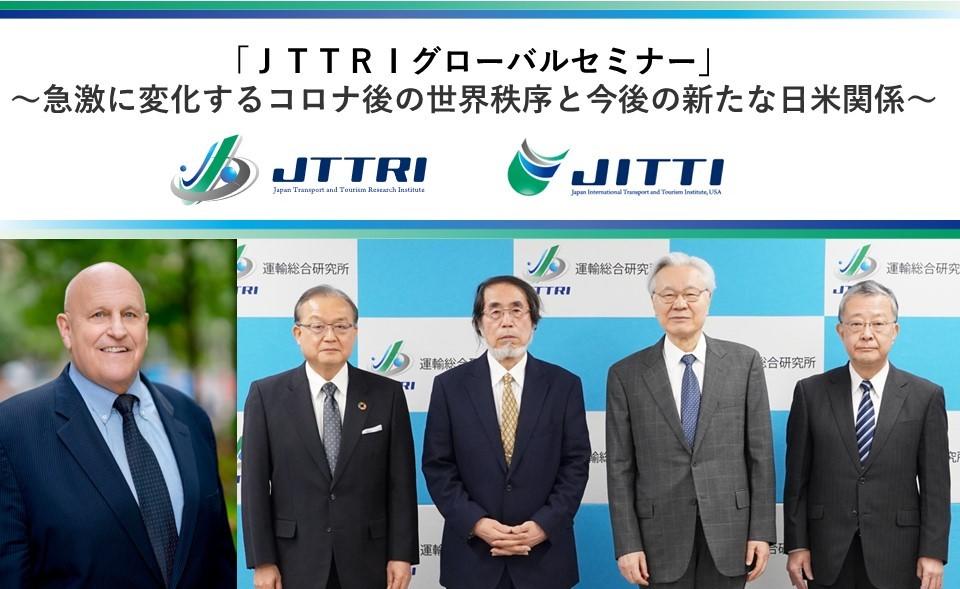

| Date / Time | Tue, Dec 13,2022 |
|---|---|
| Theme | 【Keynote Speeches】 Richard L. Armitage Former Deputy Secretary of State President, Armitage International Shotaro Yachi Former Secretary General of the National Security Secretariat Former Vice Minister for Foreign Affairs President, Fujitsu Future Study Center 【Discussion Moderator】 Yoshikatsu Suzuki Distinguished Research Fellow, The Japan Forum on International Relations, Inc |
Event Summary
The international situation is changing drastically in the post-COVID era. In addition to unforeseen and serious situations such as the invasion of Ukraine by Russian forces, the relationship between the U.S. and China is changing into a competitive one as a result of China's aggressive maritime expansion.
Under these circumstances, some countries that are in favor of the concepts of (1) promoting and entrenching the rule of law, freedom of navigation, and free trade, (2) pursuing economic prosperity, and (3) ensuring peace and stability are emerging, while other countries are emphasizing relations with China and Russia, which are promoting changes in the status quo through force.
At a time when the international order is undergoing rapid change, it is very important to discuss how the Japan-U.S. relationship, which has always been the most important bilateral relationship, should evolve to a new dimension. In addition to government-to-government diplomacy, people-to-people exchanges between the two countries have played a key role in the foundation of the Japan-US relationship, covering multiple layers and a wide range of areas including business, academia, culture, education, and tourism. However, since COVID has forced people to communicate virtually, it is necessary to reconsider the significance of the Japan-US relationship and reconstruct it at a higher level.
In the seminar, we had two of the most knowledgeable and experienced experts on diplomacy and security in the U.S. and Japan speak on these topics.
Program of the seminar is as the following
| Opening Remarks |
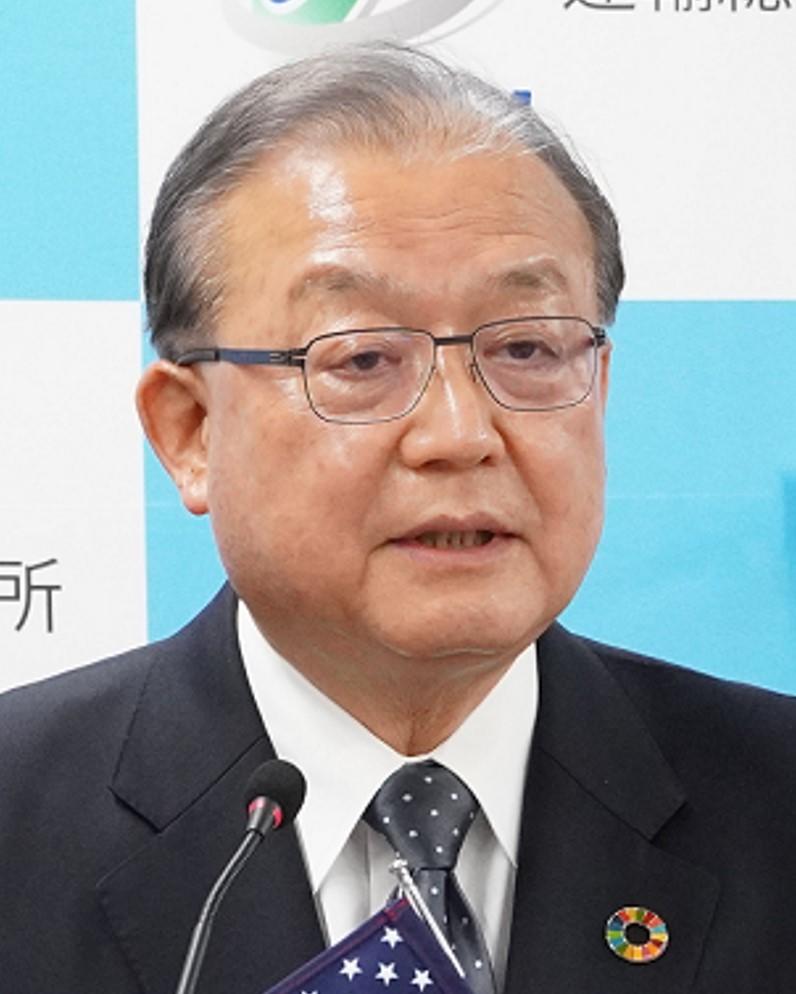
Masafumi Shukuri |
|---|---|
| Keynote Speeches |

Richard L. Armitage |
| Keynote Speeches |
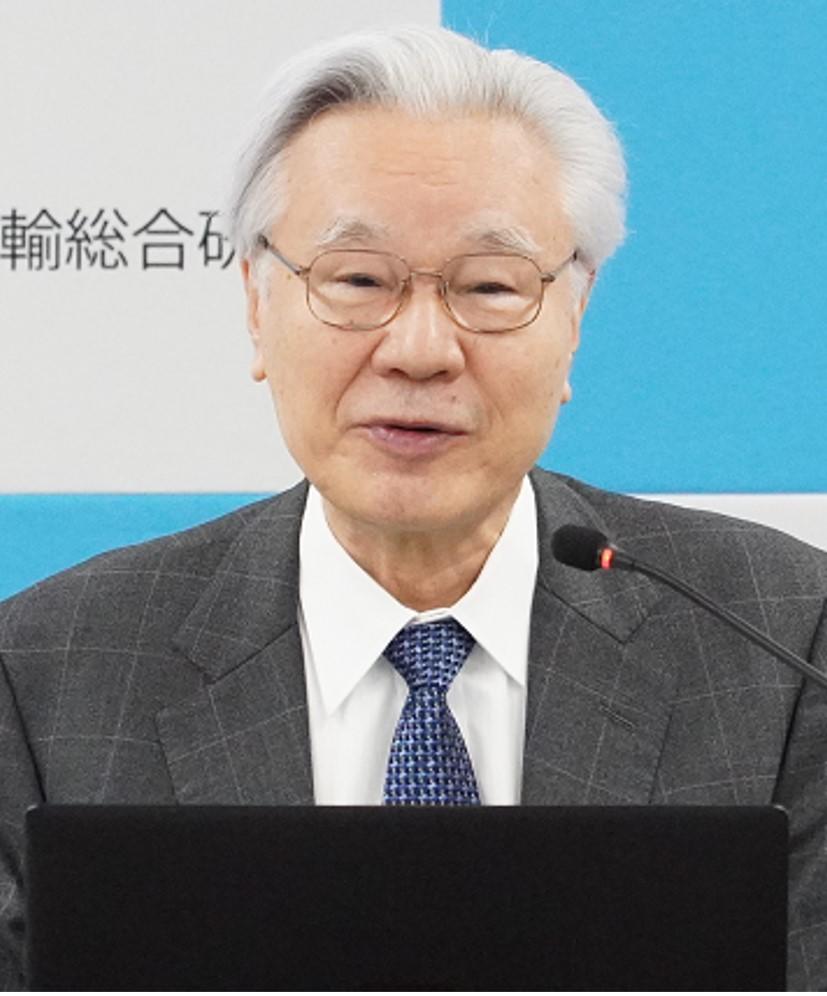
Shotaro YachiFormer |
| Discussion Moderator |
Yoshikatsu Suzuki
Distinguished Research Fellow, The Japan Forum on International Relations, Inc 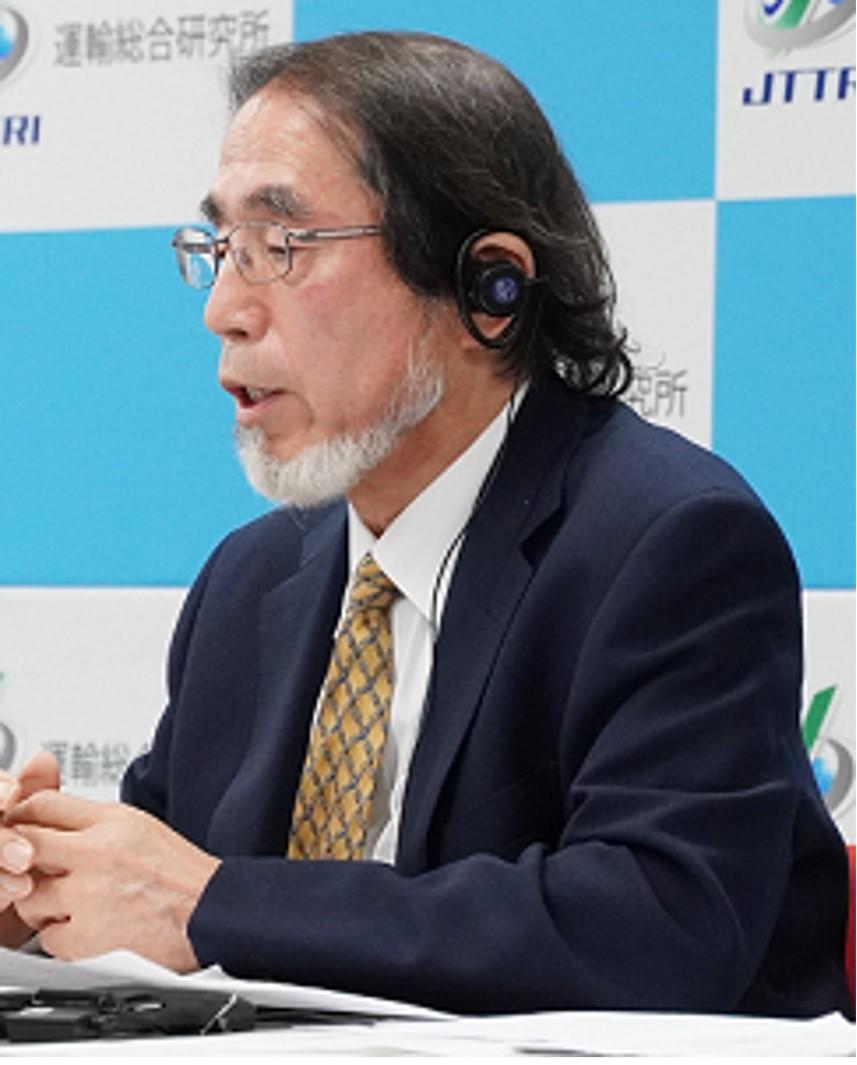 bio |
| Closing Remarks |
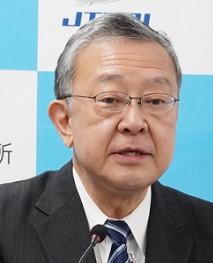
Tetsuya Okuda |
Outline of the seminar
Results of the day:[Keynote Speech]
1. Keynote Speech by Ambassador Richard L. Armitage
(Former Deputy Secretary of State and President of Armitage International)
<On the achievements of the late Prime Minister Abe>
- Former Prime Minister Abe was a person of foresight. From the beginning of the 1990s, Mr. Abe pointed out that failure to properly deal with the rise of China could cause a major problem for the world. He also mentioned the importance of Taiwan from the perspective of Japan’s national security.
- Mr. Abe advocated the vision of a free and open Indo-Pacific, exhibited excellent political skills in Japan’s relations with Southeast Asian countries, established the framework of the Quad involving not only the United States but also India and Australia, and made universal values, such as freedom, human rights, democracy, and the rule of law, take root in the region.
- He considered the following three points important in maintaining and developing the Japan-U.S. relationship.
(1) Japan-U.S. relations are based on the Japan-U.S. Security Treaty, which also serves as a bridge between the U.S. and Asia.
(2) Japan should complement the role of the U.S. in Southeast Asia.
(3) Japan should be recognized globally not only as an economic power but also for its role in security issues.
<On President Xi Jinping of China>
- China is facing a structural problem that prevents even those deemed to be close aides to President Xi, such as Politburo members, from making problem-solving proposals to him as Xi identifies himself as China itself. Hence, the country has been unable to take effective measures against a pile of challenges, including economic issues caused by the COVID-19 pandemic, environmental issues, employment issues, energy issues, and human rights issues.
- If Kevin McCarthy assumes the post of U.S. House Speaker, he would send a delegation to Taiwan that is far larger than the one when Nancy Pelosi, the incumbent speaker, visited the island. This would further strain bilateral relations between the U.S. and China.
- As a result of repeating provocative activities in the South China Sea, Beijing’s attempts to change the status quo have drawn the attention of many countries, including the United Kingdom, Canada, France, and Australia, contrary to Xi’s intention.
- Xi notes that Washington has distanced itself from the Middle East and intends to take advantage of this situation to strengthen economic relations with countries in the region. However, as Iran seeks support from China in order to obtain nuclear weapons, its neighbors, such as Saudi Arabia and the United Arab Emirates, have become more alarmed. China has, thus, found itself implicated in regional security issues against its will.
<On the future relations between Japan and the United States>
- The revision of the so-called three strategic documents, namely, the National Security Strategy, the National Defense Strategy, and the Defense Buildup Program that will be released by the Japanese government, as well as planned increases in defense expenditures will bring about major changes in the Japan-U.S. relationship.
- Japan needs to acquire counterstrike capabilities that will deter its foreign enemies from launching attacks on the country in the future. However, the formulation of a new strategy requires the three elements of financial, human, and time resources, and whether the country can secure sufficient time is crucial.
- Japan should join the Five Eyes, a framework where the five countries of the U.S., the U.K., Canada, Australia, and New Zealand share confidential political and military information, to form a Six Eyes, after taking all possible measures for the security of confidential information based on the need-to-know principle (under which the access to certain information should only be granted to those whose duties require it and denied to those whose duties do not).
2. Keynote Speech by Mr. Shotaro Yachi
(Former Secretary General of the National Security Secretariat, Former Vice Minister for Foreign Affairs, and President of Fujitsu Future Study Center)
<On Japan as a tier-one nation>
- The U.S.-Japan Alliance: Anchoring Stability in Asia (the so-called Armitage-Nye report) issued in August 2012 raised the following two points:
(1) Japan is expected to continuously contribute to the world’s peace, stability, and prosperity as one of the tier-one nations in the future.
(2) A lasting Japan-U.S. alliance requires Japan to be a tier-one nation ally.
- Under his second administration inaugurated in December 2012, former Prime Minister Abe attained groundbreaking achievements by proposing the vision of a free and open Indo-Pacific and gaining support from countries respecting universal values in a world marked by growing division, confrontation, and confusion, thereby increasing Japan’s presence in the international community. He, thus, successfully completed foundation work that would enable the country to remain as a tier-one nation.
- Succeeding administrations have continued the basic diplomatic and national security policies adopted by Mr. Abe, such as diplomacy taking a panoramic perspective of the world map, proactive contributions to peace, and enhancement of defense capabilities. As the incumbent prime minister, Mr. Kishida is working on a drastic reinforcement of defense capabilities.
<On lessons Japan should learn from Russia’s aggression against Ukraine>
- Japan should recognize the brutality of dictatorships and the merciless reality facing the international community and develop an awareness of the problem of whether the country’s current defense posture is sufficient to effectively deal with, for example, a contingency involving Taiwan.
- As Ukraine is fighting bravely and refusing to accept peace with slavery, Japan should be aware that its alliance with the United States functions effectively on the premise that mutual help is possible only when we make self-help efforts.
- Together with the U.S. and other like-minded nations, Japan should exercise to the maximum extent possible its soft power, whose persuasiveness comes from its inherent nature, instead of military power and pursue an ideal liberal international order.
- Since the end of the Cold War, U.S.-led globalization has rapidly expanded, and the Euro-Atlantic and Indo-Pacific regions have deepened their connectivity and interdependence. They are inseparable not only in socio-economic aspects but also in peace and security aspects. Moscow’s invasion of Ukraine influences Beijing’s decision-making regarding its possible invasion of Taiwan.
<On the path Japan should take>
- Japan’s national security goals are as follows: first, protect the lives and assets of its people; second, protect the country’s tradition, history, culture, and spirit; and third, protect universal values, such as freedom, human rights, democracy, the rule of law, and the market economy. Therefore, it is desirable that the so-called three strategic documents clearly state the direction of strengthening defense capabilities necessary to this end.
- It is imperative for Japan to follow the spirit of self-help and maintain and enhance its alliance with the U.S. so that the Japan-U.S. Security Treaty, on which the alliance is based, will remain undoubtedly effective in the eyes of the world. At the same time, Japan should broaden its horizon of diplomacy and proactively contribute to global peace and prosperity.
- With regard to the most suitable position for Japan in the international community, the country should neither seek to become a hegemonic superpower in the world nor be content with thriving modestly in a corner of the globe. It should rather survive as a major responsible power and major player in the world.
- It is vital for Japan to realize that soft power is convincing only when backed by hard power, enhance both, combine them wisely, learn lessons from the Ukraine crisis, and discuss the path the country should take in light of the trends of our times, such as green, digital, and economic security.
[Discussion]
Discussion Moderator: Mr. Yoshikatsu Suzuki
(Distinguished Research Fellow, The Japan Forum on International Relations, Inc. and Former Editor-in-Chief of Diplomacy Magazine ‘Gaiko’)
1. Situation and challenges surrounding the Japan-U.S. alliance
<On the Ukraine war triggered by President Putin of Russia, which is threatening the foundation of the liberal international order (question for Ambassador Armitage)>
(1) The Ukraine war is inseparable from the brave fighting spirit of President Zelensky and the people of Ukraine as well as support from Western nations including the United States, Europe, and Japan, while some point out that it is a proxy war for NATO. Is there “support fatigue” for Ukraine among the countries of the U.S. and Europe?
(2) The Ukraine war exerts a large influence on Northeast Asia too. In particular, the war is often discussed as analogous to a contingency involving Taiwan. We can see that China, as it aims for unification with Taiwan, is paying close attention to how the war will unfold. What lessons is Beijing expected to learn from the Ukraine war?
(Ambassador Armitage)
(1) The United States and many Western European countries regard the Ukraine war as a proxy war for NATO, and they are firmly determined to continue support for Ukraine, inspired by President Zelensky’s hard struggle.
(2) It is true that the Ukraine war affects Northeast Asia as it has served to remind many Japanese people about Hokkaido for its proximity to Russia and make them renew their recognition of how important the region is. In addition, I believe that China calculates the risk associated with a military invasion of Taiwan, factoring in Japan’s efforts to strengthen its defense capabilities as well as stronger relations between Japan, the U.S., Western European nations, and Taiwan.
<Some note that a contingency involving Taiwan directly leads to a contingency involving Japan. Mr. Yachi, while you explained what Japan should learn from the Ukraine war in your keynote speech, what did or will China learn from the war? (question for Mr. Yachi)>
(Mr. Yachi)
China is expected to learn how to level-headedly analyze the following software and hardware costs incurred in the event of annexation attempts against Taiwan with the use of force and to resolve the cross-strait issue peacefully.
(1) China may find itself in a situation that forces it to brace for prolonged battles, depending on the extent of Taiwan’s resistance and preparations against Chinese invasion as well as the degree of support for Taiwan from Japan and the United States.
(2) An invasion of Taiwan, the center of the world’s production of advanced semiconductors, would cause considerable disruptions to the global economy. It would inevitably isolate China, which will be held responsible, from the rest of the world.
<Some Japanese experts note that Beijing may have learned that the threat of nuclear weapons is still effective, as Moscow has repeatedly posed nuclear threats to Ukraine. Moreover, North Korea and nuclear powers in Asia may resort to the threat of nuclear weapons to gain superiority in international relations in the future. In response to this, Japan, as a country upholding the three non-nuclear principles, cannot help but depend on the extended deterrence and nuclear umbrella provided by the U.S. under the Japan-U.S. alliance, but some doubt the effectiveness of this. Against this background, there have also been calls for discussion of the idea of NATO-style nuclear sharing. What do you think about its feasibility? (question for Mr. Yachi)>
(Mr. Yachi)
The effectiveness of the extended deterrence and nuclear umbrella hinges on whether the United States regards Japan as an irreplaceable ally that the country will never abandon under any circumstances. As such, as long as Japan makes serious efforts to maintain and enhance the Japan-U.S. alliance, Washington’s trust in Tokyo as an ally will grow and extended deterrence will function effectively.
It is difficult to imagine a situation that requires nuclear sharing in the immediate future, but should the need arise, it is essential for both Japan and the U.S. to discuss the issue. I believe it dangerous for Japan to follow its own path without the consent of the U.S., which has provided the nuclear umbrella.
<Another cataclysmic change that shakes the liberal international order to its foundations is China’s unilateral attempts to change the status quo in the future regarding its unification with Taiwan, which Beijing regards as its “core interests.” Thus, how President Xi will approach this issue is drawing attention. There are two theories, hard-line and soft-line, on Xi’s stance toward unification with Taiwan. The former is that China will embark on unification with Taiwan even with recourse to force by 2027, the last year of the third term of the Xi administration. The latter is that China will be forced to adopt strategies involving the carrot-and-stick approach for the time being, under the assumption that the country would not be able to withstand sanctions in response to military invasion imposed by the United States, Europe, and Japan due to structural vulnerabilities in its economy, trade, and finance. With roughly one year to go before the presidential election in Taiwan, what are the future prospects on the Taiwan issue? (question for both speakers)>
(Ambassador Armitage)
The issue of Chinese aggression against Taiwan is about whether China, as a state or the People's Liberation Army (PLA), intends to invade Taiwan. Meanwhile, if China makes estimates of the costs described by Mr. Yachi in a cool-headed manner, I don’t think that the country would launch a military invasion unless pressed to do so.
Taiwan President Tsai Ing-wen has led the people of Taiwan and demonstrated her remarkable diplomatic skills. Opposition Kuomintang made great strides in the latest unified local elections, but China must not take it lightly as a sign that Taiwan will adopt a pro-China policy immediately. Most Taiwanese people do not identify as Chinese, and they seek policies for Taiwan.
Furthermore, taking into account the possibility that tensions between the United States and China may rapidly escalate due to an accidental event, such as the Hainan Island Incident (EP-3E Incident) in 2001, it is important for both countries to constantly maintain dialogue mechanisms and convey their ideas to each other.
(Mr. Yachi)
Some observers, mainly in Washington, assert that China may launch a military invasion of Taiwan in the near future. This is because they speculate that what I call the “Pearl Harbor Syndrome,” or a sentiment similar to a sense of urgency that China’s population and economic and military power will peak in the near future and make it difficult to annex Taiwan as time goes by, is prevalent among the Chinese leadership, potentially serving as a trigger for adventurous activities.
However, no other country is learning more from the Ukraine war than China, and the country tends to consider situations from a long-term, historical perspective as it has prospects of becoming the largest military and economic power by the middle of this century and replacing the United States to assume a hegemonic position.
Taiwan may see changes of government, but it is expected to maintain the status quo regarding its policy toward China. On the other hand, I suspect that Beijing will fully utilize what is called the three warfares (public opinion warfare, psychological warfare, and legal warfare) to peacefully seize Taiwan without a large-scale use of force.
2. Utility of a Free and Open Indo-Pacific (FOIP) and expectations for its future
<Both Japan and the United States focus on FOIP and work together toward peace, stability, and prosperity in the Indo-Pacific region. Meanwhile, the region has no collective security system like NATO in Europe. Some note that active initiatives to establish minilaterals (relatively small-scale security frameworks) are gaining momentum and that these frameworks may evolve into diverse and interconnected networks of significance. What is your take on this view? (question for Ambassador Armitage)>
(1) What do you think about the utility and future potential of minilateralism in the Indo-Pacific?
(2) While some call for Japan’s participation in AUKUS and Five Eyes, how reasonable and feasible do you think it is?
(Ambassador Armitage)
(1) Given active commercial activities and maritime trade as well as common challenges, including anti-piracy measures in the Indo-Pacific region, it is only natural that countries with shared universal values aim for a Free and Open Indo-Pacific and work to expand their networks.
(2) I don’t think that the Five Eyes nations would oppose Japan’s membership as long as Japan can ensure the security of confidential information.
3. Expectations for the Japan-U.S. alliance
<Ambassador Armitage, as a prominent figure in the U.S. security community, what do you expect from Japan going forward?>
(Ambassador Armitage)
Japan should shift from the Yoshida doctrine, a post-war policy under which Japan aims for economic recovery while relying on the United States for its security, to the Abe doctrine, under which the country rises to defend itself based on the spirit of self-help. I believe that this is the most realistic way to ensure that not only the United States but also the international community will continue to help Japan in the future.
<Mr. Yachi, you have always advocated the importance of diplomacy based on strategies and ambitions, but what do you expect from the United States in the future?>
(Mr. Yachi)
The United States used to be a beacon of hope for people suffering from oppression or poverty and those seeking opportunities and the object of global admiration as a republic of ideas. However, as 77 years have passed since the end of the war, I can see that the country feels tired of shouldering global responsibilities.
In today’s world marked by division, confrontation, and confusion, I hope that the U.S. will powerfully rise again as a leader assuming a global role and responsibility. As strong revisionist powers are emerging, I hold expectations that Washington will demonstrate its leadership in forming a desirable international order as a perceived continuation of the post-war liberal international order.
The outline of the seminar is prepared at the responsibility of the organizer.


